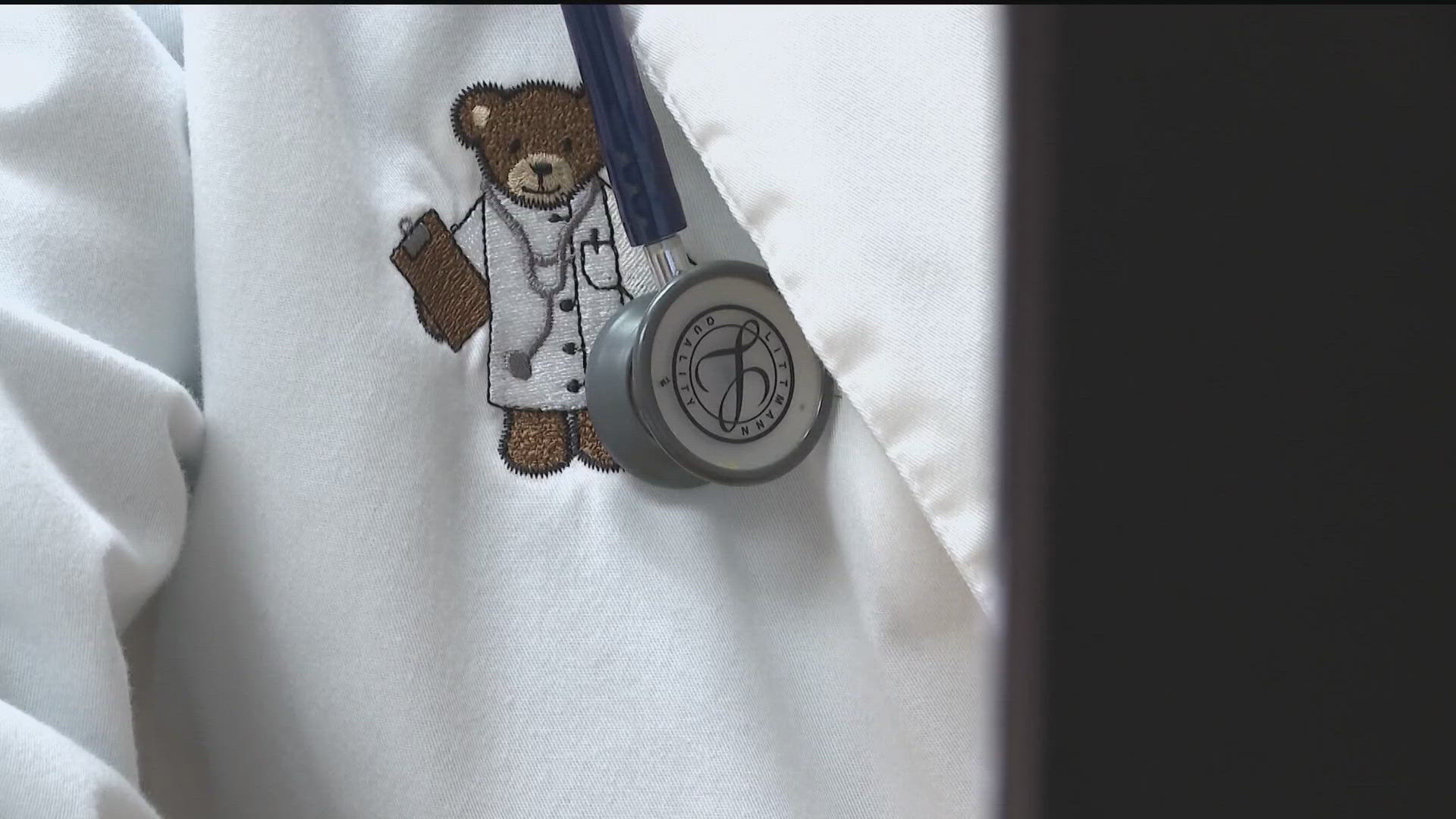ATLANTA — Georgia has just one month left to meet the "Medicaid Unwinding" deadline.
For the past year, all states have been tasked with reviewing who is still eligible for Medicaid following the COVID-19 pandemic while advocates continue to keep a close eye on the process in Georgia.
"Normally, people get their coverage renewed every year," Leah Chan, Director of Health Justice for the Georgia Budget and Policy Institute, explained. "But during the pandemic for those three years, folks got to keep their coverage. Starting in April 2023, every single adult and child enrolled in Medicaid and PeachCare was having their coverage renewed."
As the federally required process known as Medicaid Unwinding continues in the Peach State, Chan acknowledged the latest outreach efforts by the state.
"So we know that the state is hosting some events in different counties to help people with their renewals, to help people with new applications," Chan said. "We also know that the state has partnered with nonprofits focused on mothers and pregnant women to provide some mini-grants to community-based organizations across the state to get the word out, to make sure people have someone to walk alongside them during what can be a really confusing process. So that folks can stay covered or transition to some other form of coverage."
While the unwinding process started in Georgia in April 2023, ultimately, 2.7 million Georgians must be evaluated through eligibility checks.
According to the latest breakdown provided by the state, more than 310,000 Georgians were renewed for coverage for February and March, while approximately 89,000 cases were closed due to ineligibility. 16.5% of cases due for those months were closed for procedural reasons, per state numbers.
Since April 2023, approximately 1,286,000 Georgians in total have been determined eligible and received renewed Medicaid or PeachCare coverage; 11Alive is still awaiting the number of individuals whose coverage has been denied to date, but a spokesperson did confirm the current backlog is approximately 49,000 total renewals.
While the state does not release data breakdowns by age, Chan and other advocates still worry about children and low-income families losing coverage due to procedural reasons, such as problems with paperwork.
"Typically their eligibility doesn't really change," Chan said. "You know, their families incomes stay pretty static, and we have pretty broad eligibility for children with lower incomes."
Federal data released back in December showed Georgia had dropped the third-most children from Medicaid via “unwinding.” That prompted a letter from the U.S. Department of Health and Human Services Sec. Xavier Becerra to Gov. Brian Kemp, urging the governor “to ensure that no child in your state who still meets eligibility criteria for Medicaid or CHIP loses their health coverage due to ‘red tape’ or other avoidable reasons as all states ‘unwind’ from the Medicaid continuous enrollment provision that was in place during much of the COVID-19 public health emergency.”
The Governor’s Office said at that time:
“We are following the process initiated and mandated by the Biden-Harris administration, which has once again missed an opportunity to urge families to fill out their paperwork. Georgia has taken considerable action to streamline processes; utilize innovations, Georgia-centric solutions, and waivers to benefit Medicaid recipients; and just today announced the use of $54 million to further that work as we partner with community-level stakeholders and medical service providers. Rather than diminish the important work being done by dedicated and tireless caseworkers and pit states against one another, we hope Secretary Barrera joins us in our efforts to encourage families who are going through this federally initiated process to complete the paperwork required by the same federal process to remain covered.”
11Alive again followed up with the Departments of Human Services and Community Health this week regarding efforts to re-enroll children who may have been disenrolled by still qualify. A spokesperson sharing in part:
"In addition to the broader publicity activities of the “Stay Covered” campaign, the State is attempting to reach families more directly through a partnership with the Georgia Department of Education (DOE) to send messages to all local school districts (principals) as well as to school social workers, school nurses, and DOE wraparound coordinators.
The State has participated in more than 100 events across Georgia to raise awareness among families about redetermination as well as worked with several community partners who interact with or represent children, including: the Georgia School Superintendents Association, the Georgia Chapter of the American Academy of Pediatrics, Voices for Georgia’s Children, Healthy Mothers Healthy Babies Coalition of Georgia, Georgia Association of Educational Leaders, Georgia School Boards Association, Georgia Professional Association of Georgia Educators, Georgia Superintendents Association, the Georgia Association of Educational Leaders, and the Georgia School Boards Association, and more.
Principals and other school officials are included in invitations to community partner briefings, as are other organizations that work with member families.
Additional community partner outreach has been conducted through special “Bump & Beyond” community events in Albany and Savannah (with an additional event planned soon), and via communications with faith-based groups, clergy, and health care systems that treat children."
Chan, meanwhile, shared this advice to families struggling: "Appeal your denial."
"If you feel like you have been unfairly denied, you can request a fair hearing," she said.
Learn more about the process here.

